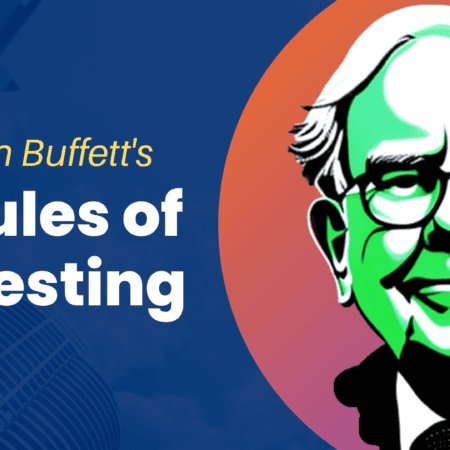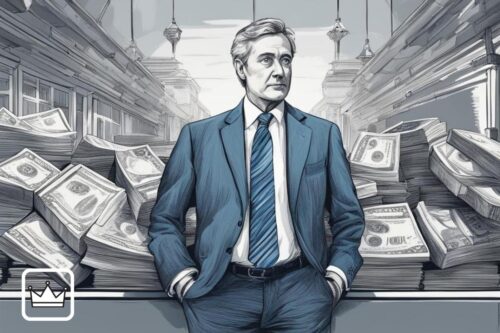Have you ever stopped to ask yourself why some people seem to stay on a path of poverty while others effortlessly manifest their wealth? The answer may not be as simple as it seems.
While there will undoubtedly be other factors at work, In this article we explore the 15 things that poor people often do that the rich don’t – and how over-spending could be the first step on the road to financial ruin. Learn how making small adjustments to your spending habits can lead to long-term financial success!
- Introduction to Rich and Poor
- 15 Things Poor People Do That Rich People Don't:
- 1. Lack of a financial plan
- 2. Spend impulsively
- 3. Live paycheck to paycheck
- 4. Make decisions without considering long-term consequences
- 5. Rely on credit cards
- 6. Neglect saving for retirement
- 7. Have no budget
- 8. Try to keep up with their neighbors
- 9. Ignore investing in their education
- 10. Spend too much time watching television
- 11. Take on too much debt
- 12. Have unrealistic expectations of wealth
- 13. Waste money on extravagant items
- 14. Always shop at the most expensive places
- 15. Spend more than they earn
- The best advice for Poor People
- Conclusion
- Frequently Asked Questions (FAQs)
Read Also: Warren Buffett’s 6 Rules Of Investing- His Secrets Of Investing Strategy Revealed
The survey concludes that $1.9 million is the threshold for being “wealthy” in the U.S., whereas the average net worth of U.S. households is about half of that amount. This information shows that a large majority of Americans are not classified as wealthy.
Introduction to Rich and Poor
Definition of Poor and Rich
Poor and rich are not necessarily absolutes, but relative terms that describe the state of one’s wealth in relation to others. Poor, in this sense, generally refers to those who lack economic resources and access to basic necessities such as food, water, shelter, and education.
Rich is used for individuals whose financial or material life stands out from the rest of society due to their large income, an abundance of possessions, or both.
The definition of poor or rich differs according to different contexts and nations. Nonetheless, it serves as an important distinction in an increasingly economically unequal world.
Reasons for Comparing
Comparing the rich and the poor can be useful in order to get a better understanding of how wealth is distributed in our society, as well as how different levels of affluence affect people within a community. It can reveal inequalities that need to be addressed or economic growth that has been achieved.
In addition, it can provide valuable insight into the topics of social mobility and economic security, helping us understand where individuals stand on the ladder of success. Comparisons between the rich and poor can also be used to inform policy decisions related to taxation, education, and rich and poor people in terms of their financial means. Generally, successful people have more resources available to them, meaning they can afford nicer clothes, better quality food, more leisure activities, and better educational opportunities.
On the other hand, poor people typically lack these same resources, making it difficult for them to make ends meet or provide a secure future for themselves and their families. Despite having different levels of financial means, both rich and poor people can live happy and fulfilling lives. While money provides opportunities and comforts that many people never experience, it definitely doesn’t guarantee happiness.
The benefits of being wealthy
Having wealth has its advantages, from financial freedom and stability to the comfort of being able to have access to a variety of resources. Being wealthy can reduce stress as it eliminates many of life’s worries and associated anxieties, freeing up mental energy for more productive pursuits. Wealth provides a ‘buffer’ in times of difficulty and unexpected circumstances, allowing more flexibility to run plans and pursue personal goals. Financial security and freedom of choice also come with increased levels of extroversion and self-confidence – creating an atmosphere of possibility and a platform to take risks that could pay off greatly down the road.
Explore the challenges of living in poverty
Living in poverty presents a number of unique challenges that many people don’t have to face. Besides worrying over the lack of resources, individuals and families living below the poverty line often struggle with health issues, inadequate education, and mental health problems, —and can even be victims of crime and violence.
However, the best way to approach these issues is to recognize them and work to find solutions. With the right help and support, individuals and families living in poverty can find a way out and achieve greater stability.
15 Things Poor People Do That Rich People Don’t:
Here are the main things rich people do–
1. Lack of a financial plan
Poor people often lack a financial plan, while rich people often have one in place. Without a financial plan, it is difficult to set and achieve long-term financial goals. Poor people can become stuck in a pattern of living without a plan and facing an ever-increasing cycle of debt or lacking the assets they need for a secure financial future.
To break this cycle, it is recommended that you create a financial plan – even if it means starting small with simple steps such as tracking expenses and setting goals. With a little bit of planning, you can begin to build money-saving habits, build wealth, and protect yourself from economic uncertainties. Taking these small steps will help you put yourself on the path to financial success.
2. Spend impulsively
Spending impulsively is a behavior that many individuals, regardless of their financial status, can be prone to. However, it is poor people who tend to suffer the most from this type of spending. Impulsive spending increases the chances of financial insecurity and can lead to rising debt and subsequent stress.
Rich people are more likely to exhibit self-discipline when it comes to spending money since they usually have the necessary knowledge and resources to make smart decisions and investments. Poor people should be aware of the consequences that come with impulsive spending which can easily put them in an irreversible situation and should focus on taking measures to manage their finances better.
3. Live paycheck to paycheck
Living paycheck to paycheck is a reality for many people. It’s one of the major differences between — those who are rich and those who are poor. When you are living paycheck to paycheck, income does not last long enough to give you financial security or stability. This means that–each month you worry about how you’ll pay your bills, or if you’ll have enough money for food and other necessities. It can be incredibly difficult to make ends meet when you are constantly dealing with this kind of stress.
Fortunately, there are strategies that can help people avoid living paycheck to paycheck – from budgeting to increasing your income, to changing your spending habits. With some planning and dedication, it is possible to break out of the cycle of poverty and achieve greater financial freedom.
Also Read: 6 Ways Rich People Use Debt To Make Money And Avoid Paying Taxes
4. Make decisions without considering long-term consequences
Making decisions without considering their long-term consequences is a common way that poor people act that can hurt them in the long run. Taking the time to look at how a decision could affect the future can help reduce the likelihood of making uninformed choices or incurring extra expenses and debt down the line.
Rich people, on the other hand, make informed decisions by looking at all the potential effects of action before they move forward. This thoughtfulness helps ensure their financial stability and allows them to prosper. Make sure to take the time to consider the possible consequences of your decisions when striving for financial security.
5. Rely on credit cards
Credit cards can be useful as a financial tool, but relying on them can have long-term consequences. Poor people often use credit cards to fund daily living expenses or get out of a tough financial situation, but it’s rarely beneficial in the long run. Rich people know that using your own savings and investing enables you to gain control over your finances, build wealth, and become financially independent.
Choosing more reliable sources of credit like loans, personal lines of credit, and short-term financial instruments, instead of maxing out your credit cards, is a much more savvy choice. Keep your money in the bank and reserve your credit cards for true emergencies only.
6. Neglect saving for retirement
Neglecting to save for retirement is one of the biggest financial mistakes many people make — especially those who are in a lower income bracket. Unfortunately, it’s often the poor and middle classes that lack the information and resources necessary to plan for retirement and build wealth for their future. But when done correctly, creating a regular savings plan and investing wisely can ensure financial comfort later on down the road.
Rich people understand this, and therefore make sure to set aside money for their retirement as soon as possible. Don’t wait any longer – start securing your future today!
7. Have no budget
Having a budget is one of the most important steps to take when managing your finances. Unfortunately, living without a budget can quickly lead to money troubles, and it’s something that many people in poverty are forced to do every day. While budgeting might be commonplace among the wealthy, it’s often overlooked by those with fewer financial resources.
Without a budget, it’s easy to lose track of expenses or not make wise spending choices. Although it might seem daunting at first, creating and sticking to a budget can help you make use of your money more effectively and securely. With the right tools and knowledge, anyone can create their own personal budget – regardless of their economic status.
8. Try to keep up with their neighbors
Trying to keep up with your neighbors is a normal part of life, especially when you’re living in an economically disadvantaged area. Unfortunately, this habit may not be the wisest choice if you are struggling financially. While it’s natural to feel the urge to try and “keep up” with those around you, it may put a strain on your own finances, which can result in further hardship.
On the other hand, wealthy people tend to prioritize their spending in different ways. They often understand how investing or saving money now can benefit them for many years in the future. Taking this long-term approach to finances is one way to remain comfortable now and plan for a brighter future.
9. Ignore investing in their education
Investing in a good education is one of the most important things you can do. Unfortunately, it’s something that many poorer people are unable to take advantage of due to limited resources. This is in stark contrast to the wealthy who recognize the importance of education and make sure their children not only get the best grades but also have access to the best schools.
Ignoring the power of investing in education is one of the key differences between poor and rich, and unfortunately holds those from lower socioeconomic backgrounds back from achieving greater things in life. Investing in your own or your child’s education should be a priority for everyone, regardless of wealth!
10. Spend too much time watching television
Watching too much television can have negative effects on your health, finances, and decision-making. While it may seem like a relaxing way to spend free time, studies show that too many hours of television watching can lead to problems in the future. Rich people understand this and dedicate their free time to health activities such as exercise, learning new skills, and interpersonal communication – something poor people could benefit from greatly.
So if you find yourself spending too much time lounging on the couch with the remote in hand, take some steps to limit your screen time and use your downtime to increase your knowledge or practice healthy habits.
Also Read: 5 Hard Truths About Money That Banks Don’t Want You To Know
11. Take on too much debt
Taking on too much debt is one of the biggest mistakes that poor people make. By borrowing large amounts of money and not having a solid plan to pay it off, they can quickly find themselves in an overwhelming financial situation. This often leads to sky-high interest payments that can end up consuming most or even all of their income.
To put it simply, accumulating debt beyond your means is almost always detrimental to your financial well-being. Rich people, on the other hand, tend to avoid taking on too much debt in order to maintain financial flexibility. They understand that taking on more debt than you can comfortably handle is likely to lead to trouble.
12. Have unrealistic expectations of wealth
One of the differences between wealthy people and those in poverty is having unrealistic expectations when it comes to wealth. While all of us want financial stability in our lives, living in abundance or achieving stellar financial success are often seen as far-fetched dreams for those in poverty. Unfortunately, this mindset can become a self-fulfilling prophecy, with people in poverty giving up easily and not taking the necessary steps to achieve their dreams.
Wealthy people have different goals and expectations of wealth, such as creating multiple streams of income and building wealth for future generations. It is important that those in poverty learn from the wealthy and strive to set greater expectations regarding wealth.
13. Waste money on extravagant items
One of the biggest differences between how rich and poor people spend their money is that wealthy individuals tend to save for long-term goals, financial security, and future investments, while those less financially fortunate may choose to use their money for immediate gratification. This can include spending money on extravagant items such as designer clothes, fancy meals, expensive vacations, and other high-end goods.
While these purchases may bring temporary pleasure, they are unlikely to result in any long-term improvement to an individual’s financial situation. In contrast, by carefully saving and investing their money, those with more abundant resources can make strategic decisions that ultimately lead to achieving wealth and financial stability.
Also Read: 25 Things You Should Never Do With Your Money : List Of 25 Things To Save Money
14. Always shop at the most expensive places
Shopping at the most expensive places might not be a wise decision for those on a limited budget. This can quickly deplete your savings and restrict you from making other important purchases. Rich people, on the other hand, are better equipped to maximize their money by taking advantage of bulk discounts or secondhand items and polishing their bargaining skills.
Being mindful of where and when you shop is key to having more financial freedom. By sticking to lower-priced options and keeping an eye out for bargain deals, you will be able to make the most of your hard-earned money.
15. Spend more than they earn
For many people, spending more than they make can quickly turn into a dangerous financial situation. Sadly, this is an all too common practice among individuals who already face economic hardship. But it’s important to remember that if you ever find yourself in this predicament, it is possible to take control of your finances and start saving rather than spending.
Rich people rarely fall into the trap of acting financially irresponsible by spending more than they make; instead, they make smart money-saving choices, plan ahead, and even learn how to invest wisely. Making small changes toward becoming financially savvy can yield long-term results.
The best advice for Poor People
Being poor can be a frustrating and difficult experience, especially when it comes to financial matters. To make sure that you don’t make any money mistakes here’s some essential advice for people who don’t have a lot of money:
✔ Always keep a balance between your income and expenses;
✔ Research business opportunities and professions before committing to them;
✔ Never expect to get something for free;
✔ Resist the temptation to participate in parties or gatherings where money will be spent;
✔ Sacrifice short-term rewards for long-term success;
✔ Remember that you only deserve what you put into something;
✔ Count how much money is coming in and out of your pocket at all times;
✔ And lastly, seek counsel from experts if needed.
Following these guidelines can be challenging, but by doing so you will ensure that you stay financially stable.
Conclusion
We’ve looked at 15 things poor people do that rich people don’t, and seen how the actions of richer people often involve careful planning for the future. Wealthy people are often well-prepared financially–and–make wise choices about money. They have a financial plan, know their budget, save for retirement, invest in their education, and spend within their means. They understand the long-term consequences of their decisions and avoid impulsive spending.
Poor financial habits such as relying on credit cards and spending too much on extravagant items can lead to debt and can limit your financial security in the future. Taking the time to develop smart financial practices —and understanding the implications of your decisions will help you build and maintain wealth.
Frequently Asked Questions (FAQs)
Question 1: What do the poor have that the rich don t?
✔ The poor have an intangible asset that the rich do not – resilience. People who are financially disadvantaged often have to develop a strength of character and spirit to overcome their obstacles.
Question 2: What are some habits that separate the rich from the poor?
✔ Habits that separate the rich from the poor include goal-setting, seeking out opportunities, prioritizing savings, self-education, and taking calculated risks.
Question 3: What are the habits of the poor?
✔ The habits of the poor include living paycheck-to-paycheck, making impulsive purchases, avoiding budgeting or planning for the future, neglecting to research investments, and failing to take advantage of available resources.
Question 4: What poor people do with their money?
✔ Poor people often spend their money on necessary items such as food and rent, but they also tend to purchase things they don’t need in order to make themselves feel better. They may buy small luxuries like clothing or electronics, even if it means they will be stretched further financially.










Leave a Reply